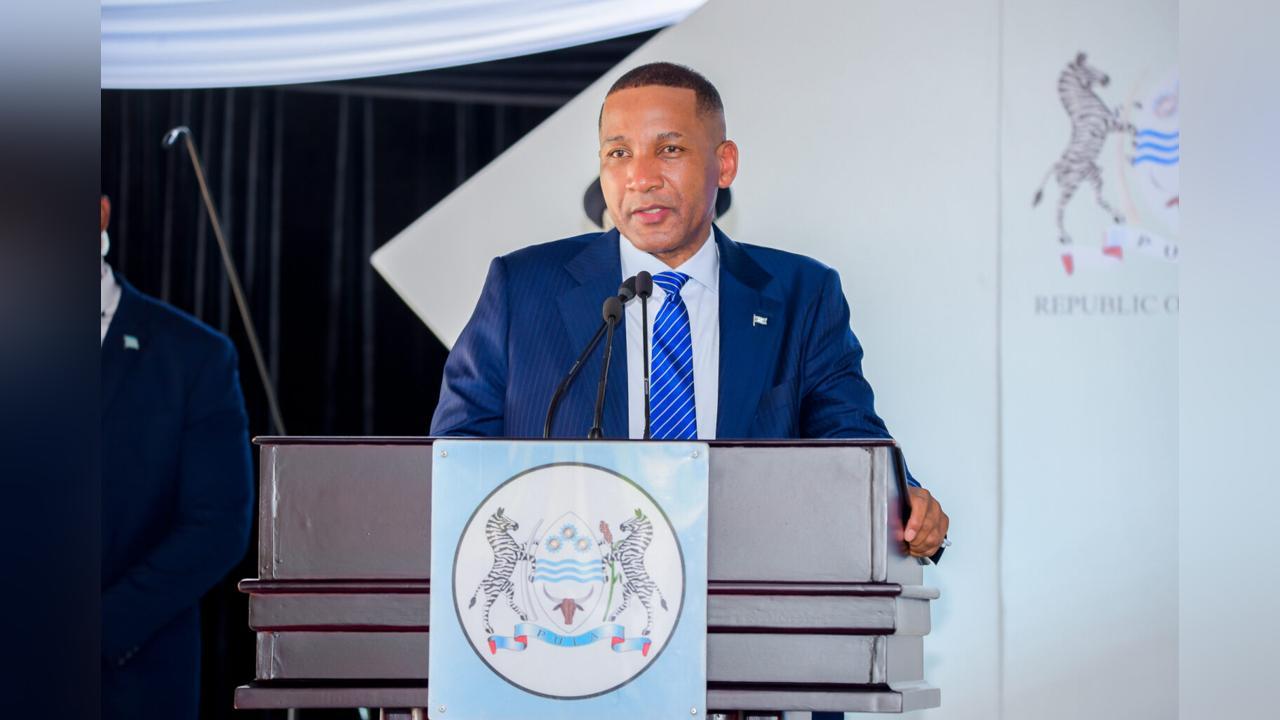Africa-Press – Botswana. Botswana’s President Duma Boko has declared a public health emergency as the diamond-producing country feels the effects of the prolonged slump in rough sales.
In a national televised address delivered, Boko said the country’s medical supply chain was in crisis, creating a shortage of medicine and other critical items at its hospitals and clinics.
The address followed a warning the country’s health ministry issued earlier this month that it was running low on supplies due to financial challenges and that all non-urgent surgeries are postponed.
In his address, Boko did not specifically reference lower diamond sales as the reason for the crisis. Instead, he pointed to issues in the medical supply chain, like the allegedly inflated cost of supplies.
However, at a press conference last month, Boko expressed concerns about how De Beers Group, which is currently up for sale, was doing business in the country.
“If the diamonds are there, how is the country broke? They are not being sold,” said Boko. “Then De Beers is not doing its job.”
In that same speech, the president also made remarks about the country taking over the diamond business and said that “something very drastic” will happen before the end of the year.
In February, De Beers and the government of Botswana signed a new 10-year sales agreement as well as a 25-year extension of the country’s mining licenses.
Under the terms of the agreement, the percentage of the country’s diamond production allotted to Botswana’s government-run Okavango Diamond Company will increase over time.
Botswana is the world’s largest producer of diamonds by value, and its economy relies heavily on the gemstones.
Diamonds account for around 80 percent of exports, one-third of fiscal revenues, and one-quarter of its GDP, according to the International Monetary Fund.
As a result, a drop in the demand for and price of natural diamonds has disrupted its economy, an issue that took center stage in its elections last year, which Boko won in a major upset.
Among the issues Boko, a 55-year-old human rights lawyer who graduated from Harvard Law School, campaigned on was improving the country’s financial stability, not only through diamond sales but also by diversifying the country’s economy, an issue he raised again at the press conference last month.
In Monday’s address regarding the health crisis, Boko outlined a response plan, which includes the release of 250 million pula ($18 million) in emergency funds to address the crisis.
Notably, until recently, Botswana received funding from the U.S. government for health services, including about one-third of the budget for its HIV response, according to UNAIDS, but those payments have stopped due to funding cuts by the Trump administration.
The Botswana Defense Force will oversee the procurement of six to eight weeks of critical medical supplies from local suppliers with quality products in stock.
The procurement is “highly price sensitive given our limited coffers,” said Boko.
Boko announced the establishment of a national taskforce to help stabilize supply chains, and the creation of the Health First Botswana Partnership Fund.
“I appeal to all people of conscience to invest in this fund for the sake of the people of Botswana,” he said.
Boko also called for an overhaul of the current medical supply system, and claimed the prices of goods have been inflated five to 10 times higher than fair market value in what he called “an unjustifiable depletion of government monies.”
He outlined long-term solutions, including sourcing directly from manufacturers to reduce costs as well as implementing end-to-end automation, price monitoring, and data-driven stock management.
“I emphasize that the work has been nonstop and it will remain so until medicine reaches all the shelves in the country,” Boko said.
The first trucks loaded with supplies had already left Gaborone, he said.
For More News And Analysis About Botswana Follow Africa-Press






